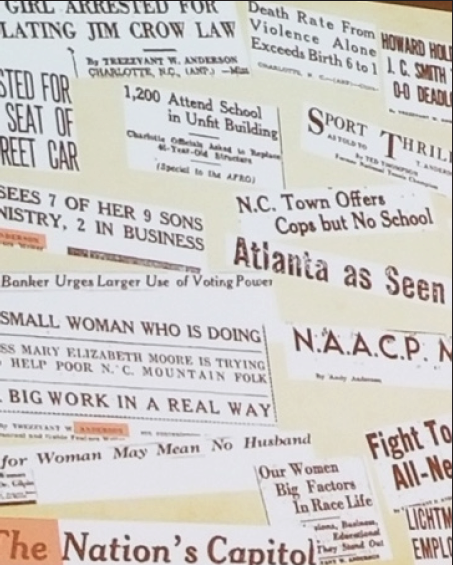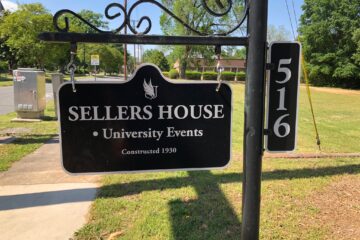When people think of civil rights it is likely they picture prominent figures such as Dr. Martin Luther King Jr., Rosa Parks or Malcolm X. However, few people may be aware of the importance of other local heroes of the movement. Trezzvant Anderson is one of those local heroes who led protests and began paving the way for African American journalists out of Charlotte. Willie Griffin from Levine Museum of the New South hosted an event at Winthrop to share his research on Anderson and inform students of his impact on black history.
Dr. Griffin spoke to a room full of students and faculty in a classroom in the Owens building on campus. Dr. Griffin told the audience he first became interested in Anderson while working on his master’s degree at UNC Chapel Hill. He wanted to expand his study on Charlotte’s Civil Rights Movements and found Anderson had begun leading peaceful protests and inciting other African Americans to fight for equal rights long before the other figures that are widely regarded as civil rights leaders. “Anderson/s life represents a huge gap in Civil Rights history,” Griffin said.
Anderson was important not only for encouraging students to peacefully protest against injustice but also for speaking the truth using the power of the press. Anderson first began writing news stories in high school and then went on to write powerful pieces on the state of African American students and faculty as featured editor of his university’s newspaper at Johnson C. Smith University in Charlotte, North Carolina. Upon graduating in the 1920s, he would go on to work for national newspapers, writing the truth about black America in a time where less progressive views were the most accepted. Anderson is also credited as laying the foundation for African American journalists to be admitted into the White House Press Correspondents Association.
During World War II, Anderson went overseas as a war correspondent. He wrote articles on African American soldiers fighting for freedom. He also wrote a book based on his interviews with an all-Black tank battalion.
Anderson later reported on Cold War politics and roved through the South reporting on real African American issues and the civil rights movement. Anderson had power because he was trusted and respected by the people reading his articles. It was known by his readers and his critics that he was not afraid to speak the uncensored truth. Claude Barnett, a frequent target of Anderson’s, was quoted by Griffin as saying, “a newspaper can be a dangerous weapon in Trezzvants hands.”
Zuri Anderson is a senior mass communications major and editor in chief of The Roddey McMillan Record at Winthrop University. She attended the event and remarked on what she had learned about Trezzvant Anderson’s legacy. “As an African American journalist, this was really enlightening,” Anderson said. “ I didn’t know such a figure would have so much influence over the reporting and archival of African American affairs and disparities during those times. This kind of research demonstrated the power of journalism and its contributions, but also the importance of understanding the history of your community in relation to national history.”




